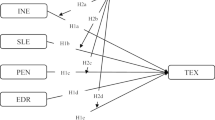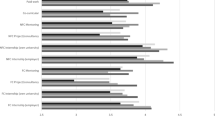Abstract
This study investigated how instructors in United Arab Emirates higher education institutions view their professional employment, the extent of their identification and engagement with their institution, and how their views are shaped by the national and institutional contexts in which they work. Many interviewees felt their professional contributions were valued and they were respected as individuals, but, at the same time, they were regarded by their employing institution as transient and easily replaceable. Findings suggest that the extensive use of expatriate staff on short-term contracts can work against the development of institutional loyalty or commitment. Results of this study hold broader implications for universities in other countries that see increasing their reliance on expatriate instructors as a prudent course of action.
Similar content being viewed by others
Notes
The terms faculty and academic staff are used interchangeably to indicate those individuals employed by higher education institutions to deliver instruction and conduct research.
A total of 135 instructors, randomly selected from a university contact list at each of the institutions, were invited to participate in the study. Of those contacted, 49% did not respond, 14% declined, 10% confirmed but cancelled the appointment before the interview, and the remaining 27% were interviewed.
Three of the 37 instructors and one of the five administrators declined to have their interview recorded. In these cases, interviewers relied on interview notes and summaries of each interview recorded by the researcher following those interviews.
Emiratization is a government initiative set up over 10 years ago to increase private sector employment of Emiratis.
References
Asian Development Bank (ADB) (2011) Higher Education across Asia: An Overview of Issues and Strategies, Mandaluyong City, Philippines: Asian Development Bank.
Chapman, D.W. (2009) Higher Education in East Asia, Background paper prepared for the World Bank, Washington DC: World Bank.
Chapman, D.W. and Miric, S. (2009) ‘Education quality in the Middle East’, International Review of Education 55 (4): 311–344.
Croom, P. (2010) ‘Motivation and Aspirations for Branch Campuses in the Gulf Region’, in R. Sakamoto and D.W. Chapman (eds.) Cross-Border Partnerships in Higher Education Strategies and Issues, New York: Routledge, pp 45–66.
Deloitte Consulting (2008) University staff academic salaries & remuneration: A comparison of New Zealand and selected international (Australia, Canada, England, USA) data. Report Commissioned by the New Zealand Vice Chancellors Committee on behalf of the Tripartite Forum Working Group, May, http://www.universitiesnz.ac.nz/files/u10/deloitte-report-08.pdf, accessed 7 July 2011.
Galal, A. (2002) The paradox of education and unemployment in Egypt. Working Paper No.67. Cairo, Egypt: The Egyptian Center for Economic Studies.
Gappa, J.M., Austin, A.E. and Trice, A.G. (2007) Rethinking Faculty Work: Higher Education’s Strategies Imperative, San Francisco: Jossey-Bass.
Lane, J.E. (2010) ‘Joint Ventures in Cross-Border Higher Education: International Branch Campuses in Malaysia’, in R. Sakamoto and D.W. Chapman (eds.) Cross-Border Partnerships in Higher Education Strategies and Issues, New York: Routledge, pp 67–90.
Lane, J.E. (2011) ‘Importing private higher education: International branch campuses’, Journal of Comparative Policy Analysis 13 (4): 367–381.
Lane, J.E. and Kinser, K. (2011) ‘Reconsidering privatization in cross-border engagements: The sometimes public nature of private activity’, Higher Education Policy 24 (2): 255–273.
Shaw, M.A., Chapman, D.W. and Rumyantseva, N.L. (2011) ‘Caught in a double bind: The impacts of the Bologna process on academic staff in Ukraine’, Higher Education Management and Policy 23 (3): 73–91.
UAE (2010) Education Vision 2020 Abu Dhabi: UAE.
Welmond, M. (2006) The Road Not Travelled: Education Reform in the Middle East and North Africa. Concept paper (draft) Washington DC: The World Bank.
Author information
Authors and Affiliations
Rights and permissions
About this article
Cite this article
Chapman, D., Austin, A., Farah, S. et al. Academic Staff in the UAE: Unsettled Journey. High Educ Policy 27, 131–151 (2014). https://doi.org/10.1057/hep.2013.19
Published:
Issue Date:
DOI: https://doi.org/10.1057/hep.2013.19




